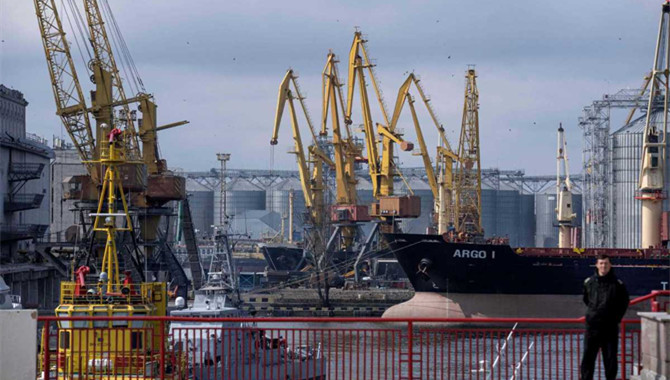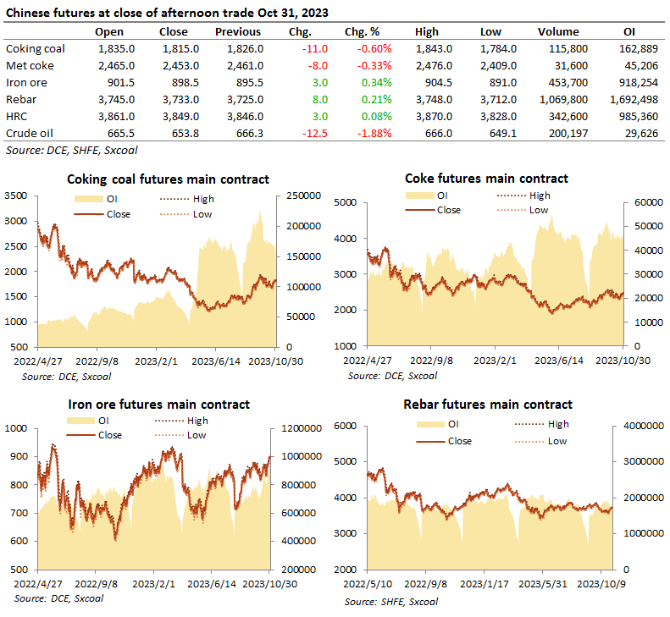
[Photo: Agencies]
Russia says it will not renew pact until hurdles lifted on agricultural shipments
Wheat and corn prices on global commodities markets have jumped after Russia announced on Monday its pullout of a crucial deal allowing the export of grain from Ukraine.
Ukraine and Russia are both major global suppliers of wheat, barley, sunflower oil and other affordable food products that developing nations rely on.
The Kremlin on Tuesday issued a veiled warning over the future of grain exports via the Black Sea, claiming Kyiv was using the export corridor "for combat purposes".
The Black Sea Grain Initiative — originally brokered by Turkiye and the United Nations a year ago — has ensured the safe passage of ships carrying grain from Ukrainian ports. The UN said a final ship carrying Ukrainian grain through the Black Sea was inspected in Istanbul on Monday, a few hours before the deal expired.
The international community sees the deal as "critical" to bringing down food prices around the globe, which spiked after Russia launched its special military operation in Ukraine in February last year.
Kremlin spokesman Dmitry Peskov told reporters on Monday that Russia would not renew the pact right now, saying it "has been terminated".
Moscow has for some time complained it is being prevented from adequately exporting its own food and fertilizer, and Peskov cited that reason for pulling out of the deal.
"As soon as the Russian part is completed, the Russian side will return to the implementation of this deal immediately," he said.
Over the weekend, Russian President Vladimir Putin said the main objective of the deal — supplying grain to countries in need — "has not been realized", again complaining that Russia faced obstacles exporting its own food.
Peskov left the door open to reviving the deal in the future, saying that Russia will comply "as soon as the Russian part (of the deal) is completed".
Adam Hodge, a spokesman for the US National Security Council, said in a statement that Russia's decision will worsen food insecurity and harm millions of vulnerable people around the world.
Wheat futures on the Chicago Board of Trade jumped 2.7 percent to $6.80 a bushel and corn futures rose 0.94 percent to $5.11 a bushel as traders feared an impending supply crunch of the staple foods.
So far, the Black Sea deal has allowed for the export of almost 33 million metric tons of food through Ukrainian ports, according to United Nations data. The deal had been renewed three times, but Russia has been complaining it has been hampered in exporting its own products.
Speaking to reporters at the Council of the European Union in Brussels on Tuesday, French President Emmanuel Macron said Moscow had made a "huge mistake" with its decision to "weaponize" food by pulling out of the critical Black Sea grain deal, saying Russia assumed "a huge responsibility" toward numerous countries by participating in the UN-brokered deal.
"Middle Eastern, African, and even Asian countries are very much dependent on these agreements, which will be impacted by the unilateral decision of Russia," Macron said.
The Kenyan Ministry of Foreign Affairs warned on Tuesday that Russia's decision to terminate the Black Sea deal is a "stab on the back at global food security prices".
Korir SingOei, Kenya's principal secretary of foreign affairs, said in a tweet Tuesday that the decision "disproportionately impacts" countries in the Horn of Africa that have already been impacted by drought.
In response, Moscow said it is allowing the deal struck to allow the export of Ukrainian grain to expire. The deal allowed Ukraine to export grain from its ports and navigate a safe passage through the Black Sea to the Bosporus Strait in Turkiye.
Turkish President Recep Tayyip Erdogan said officials were talking with Russia and that he hoped the deal would be extended.
'Temporarily dangerous'
However, the Russian Foreign Ministry again declared the northwestern Black Sea area "temporarily dangerous".
Sergei Markov, a Moscow-based political analyst, speculated that if Ukraine doesn't heed the warnings, Russia could strike Ukrainian ports or place mines on shipping routes.
Andrey Sizov, director of SovEcon, a firm focused on the Black Sea agricultural markets research, said in an interview with the Russian newspaper Kommersant that the market is likely questioning the seriousness of Russia's rhetoric as it expects Ukrainian food exports to continue. According to Sizov, in general, Ukraine will be able to fulfill its grain export plan for this season even without using deep-water terminals on the Black Sea.
"Ukraine is already making active use of the Danube as a route for grain exports and recently sent the first Handymax class vessel via this channel, carrying around 20,000 metric tons of corn," the Russian expert said, adding that it exports foodstuffs via the European Union and to customers within the bloc itself.
The prospects for further implementation of the grain deal remain foggy, as Andrey Koshkin, head of the political science department at the Plekhanov Russian University of Economics, thinks that, most likely, Russia will reject another extension of the deal.
"Naturally, if the situation does not change, all things considered, we can suspend our participation in this four-party agreement," the expert said.
Meanwhile, Russian farmers' associations welcomed the news that Moscow had terminated its participation in the grain deal. The pact had led to price discounts that benefited neither the country at large nor Russian farmers and exporters.
Russian Grain Union President Arkady Zlochevsky hailed the decision, terming it the right move and saying it would prop up Russian wheat prices.
On the contrary, the negative factors linked to it will now be eliminated, he argued, citing the marked Russian wheat price discount compared to the prices of Russia's foreign competitors.
Source: China Daily
Source: China Daily
The opinions expressed herein are the author's and not necessarily those of The Xinde Marine News.
Please Contact Us at:







